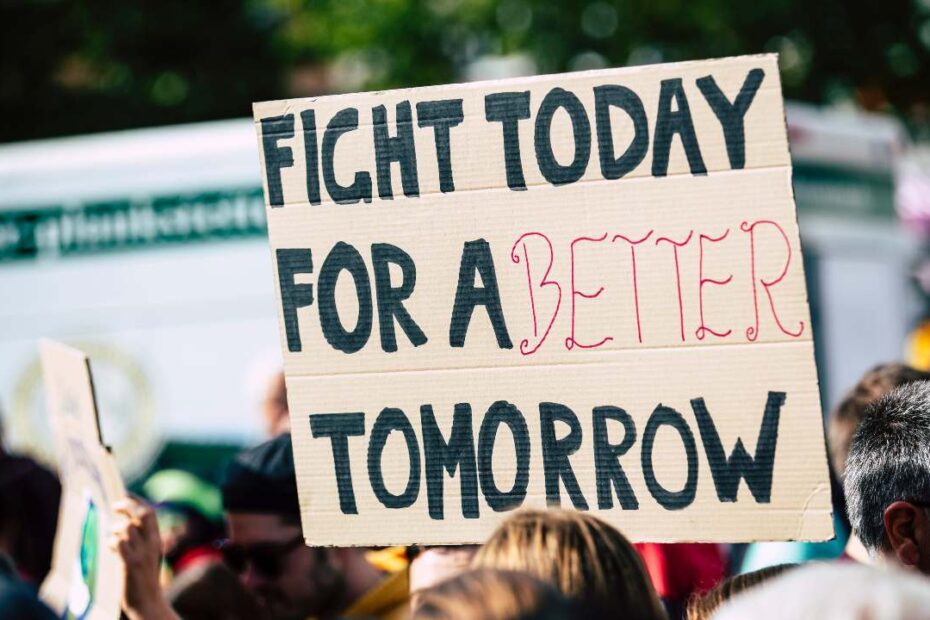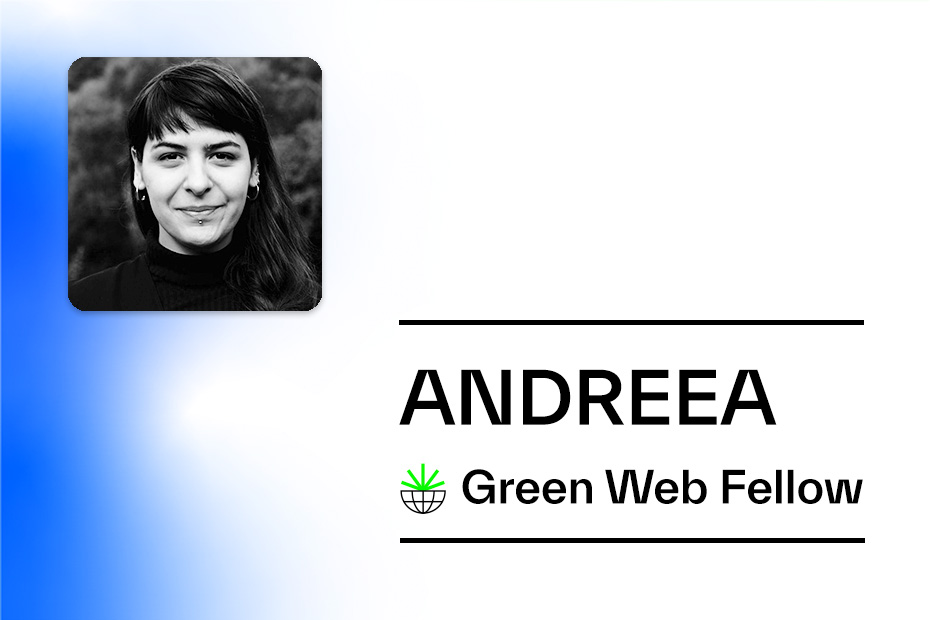In the past months I have been exploring how to advance climate justice among internet practitioners. As part of the fellowship program I work towards framing the climate crisis as a core issue for digital rights funders. More specifically, it has allowed me to work on this research project that is aimed at informing responsible grantmaking on the intersection between digital rights and climate/environmental justice.
The research project, supported by Mozilla, the Ford Foundation and Ariadne, entailed a landscape analysis conducted by the Engine Room, and seven deep dive issue briefs by the Association for Progressive Communications (APC), BSR, and the Open Environmental Data Project and Open Climate. Each exploring different issues that materialize at the intersection of digital rights and climate justice.
The report and issue briefs cover a lot of ground; from the difference and similarities between climate and environmental justice movement, principles and processes that can contribute to governing the environmental impact of the internet and digital technologies, to exploring climate misinformation. I can recommend reading all of them, but in this blog post I will try to describe the 5 things I have learned from this research project.
1. Embracing the uncomfortability of not knowing
Starting to think about the intersection of climate justice and digital rights can be daunting. The size, scope and urgency of both issues can leave people feeling overwhelmed, there is a sense of not knowing where to start or where to fit in. I have had and continue to have this experience.
At first I attributed my unease to the fact that while I might be an expert in the broader digital rights debates, I know little about the histories, debates and language of the climate justice movement. Still there is this inate sense of urgency, we need to act now – not tomorrow, and spaces of opportunity to shape the digitization agenda’s.
Reading the APC issue brief on ‘Environmental and digital rights: Exploring the potential for interplay and mutual reinforcement for better governance’ allowed me to ground my sense of loss. In it they argue that both the climate crisis and digital rights have a number of things in common;
- global in scope
- need for action of market, state and citizens in management and protection
- cut across most policy areas
- linked to exercising key rights.
This global and intertwined nature of both the climate crisis and digital rights means that as a governance issue it is all encompassing and very specific at the same time. Rather than waiting to become THE expert, it is necessary to embrace the uncomfortability of not knowing. This starts by learning and working in the open, being mindful of our own position, roles and blindspots, and bringing people into the conversation by meeting people where they are.
2. The need to define
In my blog post on framing the climate crisis as a digital rights issue I observed a number of challenges for digital rights funders to work on climate. One of which was defining what we mean by climate justice and digital rights.
In my fellowship I learned that when we ask digital rights funders to explore how their work, and the work of their partners, intersect with climate justice it means that you ask people to be brave and venture out into a new area. You ask people to step outside their comfort zone, their ‘normal’ work and activism, and engage in conversations about a domain they know little about.
This requires us to define what we are talking about when we use words such as digital rights, climate justice, extractivism. However, as Open Environmental Data Project points out in their issue brief on ‘Environmental Justice, Climate Justice and the Space of Digital Rights’, it is more than just defining the terms we take for granted. Engaging with different issue areas and movements requires investing in learning about each other’s vocabulary, histories, politics and challenges. To how the issue areas intersect and create a shared agenda for action.
“Move slowly, quickly, and be the people”
Michelle Thorne and Shayna Robbinson
I believe that as a digital rights movement, funders and organizations alike, we should learn from the challenges, failures and wins when engaging with issues of bias, discrimination and racism in tech. Here we can learn from the decolonizing efforts being undertaken in the digital rights field by the digital rights org, EDRi, and the strategic litigation funder, the Digital Freedom Fund. This collaboration is shifting the debate away from bias and discrimination as a side product from technology towards one that acknowledge the structural nature of oppression and racism.
“Our goal is to initiate a process that challenges the structural causes of oppression in order to work towards a digital rights field in which all groups in society have their voices heard and which works to protect the digital rights of all”
DFF
Here I learned from the issue briefs and the decolonizing work that approaching the intersection of climate justice and digital rights, from a digital rights background, requires us to define what we are talking about, learn about the history and vocabularies of each movement, and find common ground in the extractivist structures that have created and continue to perpetuate the climate and social crisis.
3. Different theories of power and and relationship to companies
In this fellowship I learned that we have to articulate our theory of power. APC’s issue brief on ‘Mapping the gaps between digital rights and environmental justice actors in the global South’ and the Engine Room landscape analysis highlight that the relationship the climate and digital rights movement have to companies is a possible place of friction.
“Digital rights orgs and environmental justice groups relate to the private sector differently. Environmental groups have adversarial and contested relationships to agribusiness, energy and other extractive sectors, while some digital rights orgs collaborate with Big Tech or Big Tech initiates programs related to digital rights. This is also reflected in the language the digital rights groups use to refer to stakeholders involved, which doesn’t take into consideration power relations”.
APC
This observation was an aha moment to me as it points to different theories of power. Acknowledging that any generalization about the relationship between civil society-market nexus does not do justice to the diversity of voices that are present in both movements, I recognize this tension. The roots of the digital rights movement lie in fighting state surveillance and creating open and free online spaces that are governed by the people and tech companies. As such, cooperation with tech companies is deeply ingrained in its DNA, often through multi-stakeholder governance processes.

This is very different from the more adversarial approach of the environmental movement, where resistance is seen as a pathway to change. So if we argue, as I do, that we need to build bridges between the climate and digital rights space to challenge the negative impact of technology on our planet, we have to work through and resolve this conflict.
4. Defining strategic opportunities
In my project I argue that the urgency of the climate crisis requires all of us to step up and push for sustainable systems and solutions. A common theme in the conversations with digital rights funders was that they shared my sense of urgency but were struggling with articulating what is at stake and where interventions from a digital rights angle can best be leveraged to support or complement environmental and climate work.
The research we commissioned give insight into a number of issue areas where climate and tech intersect. Take for example;
- The Open Environmental Data Project highlights three issue areas (1) relationship between the surveillance state, environmental activists, and the right to privacy, (2) climate migration and the right to migrant privacy and protection, and (3) the ability to use, collect, and understand environmental data
- APC sees that there is a need for digital rights orgs. to more profoundly engage with the climate crisis and the climate movement. They recognize there is opportunity in building bridges in overlapping governance and advocacy agenda’s. Here movements can leverage each other’s wins, regulatory frameworks, and action strategies to challenge the negative impacts of technology, these range from extractivism of natural resources, misinformation, to surveillance on environmental activists.
- BSR argues that a healthy information environment is crucial in fighting the climate crisis, and offers a deep dive in the issues around climate misinformation. They identify a clear need to define harm in relation to climate disinformation and demand social media platforms to take responsibility in fighting climate misinformation.
This video by Harriet Kingaby of the Conscious Advertising Network offers a good explanation of how the ad tech market is fueling climate misinformation
When reading the issue briefs and the landscape analysis, and speaking to a range of philanthropic donors, it struck me how difficult it is to define strategic opportunities at this intersection, and not instrumentalize one movement for the goals of another. What I learned here is that the initial research and the conversations with both practitioners and philanthropic funders are merely a first step. There is still a long and exciting road ahead of us, and the next steps would be to create spaces for collaboration, thinking and actions.
5. Meeting people where they are
Learning from my own experiences. For over a decade I have worked to repoliticize technology to empower people to manage their digital environment and demand social and equitable infrastructures that center people and the planet before profits. Here I have spent a lot of time demystifying technology by foregrounding the social and economic politics of it. This allowed me to meet people where they are and offer actionable pathways forward that align with the way they engage with the world.
In starting the discussion with digital rights donors and the digital rights community on the intersection of climate justice and tech, I learned that this lesson also applies to this context. We have to meet people where they are, offer them knowledge and pathways forward, and translate these large and daunting issues to something that is tangible. Which I tried to do in this blog post on the politics of data centers. By tying the issue of the climate crisis into existing work of digital rights funders and organizations it is easier to imagine how this new scope of work fits within their strategies, projects and actions.



